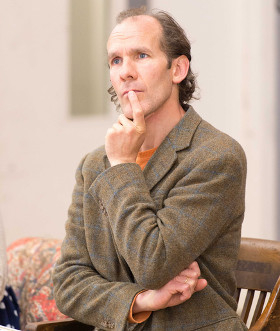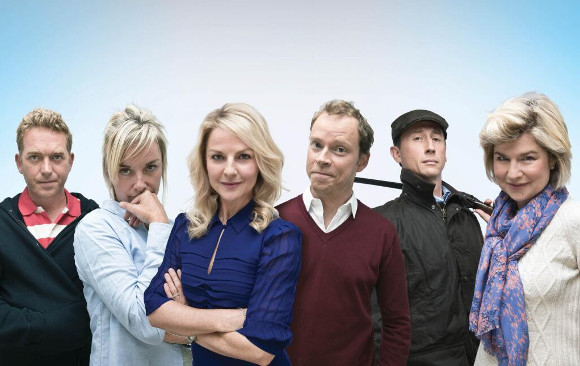Brief Encounter with… Raving writer Simon Paisley Day
Simon Paisley Day, best known to theatregoers for his performances at venues including the National Theatre, Royal Court and Shakespeare’s Globe, is about to premiere his new comedy ”Raving” at Hampstead Theatre

What inspired Raving?
My first play was performed at the Nuffield in Southampton 12 years ago, starring the late, great Richard Briers along with his wife and daughter. So that was a great first gig, but then I wrote some other plays that didn't get anywhere. The director John Caird said to me, "I bet you're going to write something about being a parent," which stuck with me, and several years later after my daughter was born, I sat down and started to write it. I wanted to write about what it's like to be a stressed out parent wondering whether you're doing it right and whether you're making the right choices.
It centres on three couples who seem to represent three stratas of the class system
Good drama is about conflict, and I thought there'd be more conflict and comedy if I presented three couples from different backgrounds who all have different views on parenting. I'm quite interested in class, because my own background is very mixed. My family, historically, are working class, and my generation was the first to go to university. In my last few years of schooling I went to a very posh boarding school, so my accent instantly changed from a Kent grammar school to posher than posh. So I've always been interested in the British class system, which is constantly evolving but is fundamentally alive and kicking.
It was once said that the pram in the hall is the enemy of art – in your case it seems to be the opposite
I do generally find that if I'm busy I find it easier to write. I think if I was sitting in a flat without children I wouldn't write a word. I find the hectic nature of family life makes my brain whir. It gives me a framework; if you've got little time to write you sit and think, 'I need to get something written in this couple of hours'. I find a corner easier to write in than a wide open landscape, as it were.
Does your work as an actor help or hinder your writing?
I think it helps, particularly in my knowledge of structure. I'm very aware of how long scenes should last, and tend to know when a scene has gone on too long. That's something that comes from my many years being in other people's plays. I also wanted to create some really good roles; I would love to play them all.
You weren't tempted?
I asked Ed [Hall] if I could play the Tabby [a 17 year-old girl], but he wouldn't see me. Seriously though, Ed's found a great cast and some big names such as Robert Webb and Tamzin Outhwaite, who put bums on seats.

How long was the play in development?
About four years. I tried to get it on for a long time and pushed my metaphorical boulder up every mountain. It was Dominic Dromgoole, who had attended one of my readings, who persuaded me to give it another shot while I was playing Petruchio for him at the Globe last year. The subsequent reading was attended by Will Mortimer, Hampstead's literary manager, and he showed it to Ed. So all the pieces finally fell into place.
How does the satisfaction compare of writing a play and starring in one?
It's a very different kind of satisfaction, and I'm not entirely sure which is sweeter. I've been acting for 20 years and the thrill of creating a good character and putting it out to an audience is very difficult to beat. I sometimes pinch myself and say "this is how you earn your money – dressing up!". But seeing my words acted out on stage is something I really savour, and standing in the foyer watching 325 people walking into the theatre every night makes my heart burst.
Would you like to maintain a balance of acting and writing going forward?
Absolutely. A former literary agent suggested I give up acting in order to write, but I didn't agree. Plenty of people have juggled writing and acting over the years, from Shakespeare to Pinter. I love both processes and each one feeds the other. It might be greedy but I want to have both if I can.
Raving premieres at Hampstead Theatre tonight (24 October 2013) and runs until 23 November












